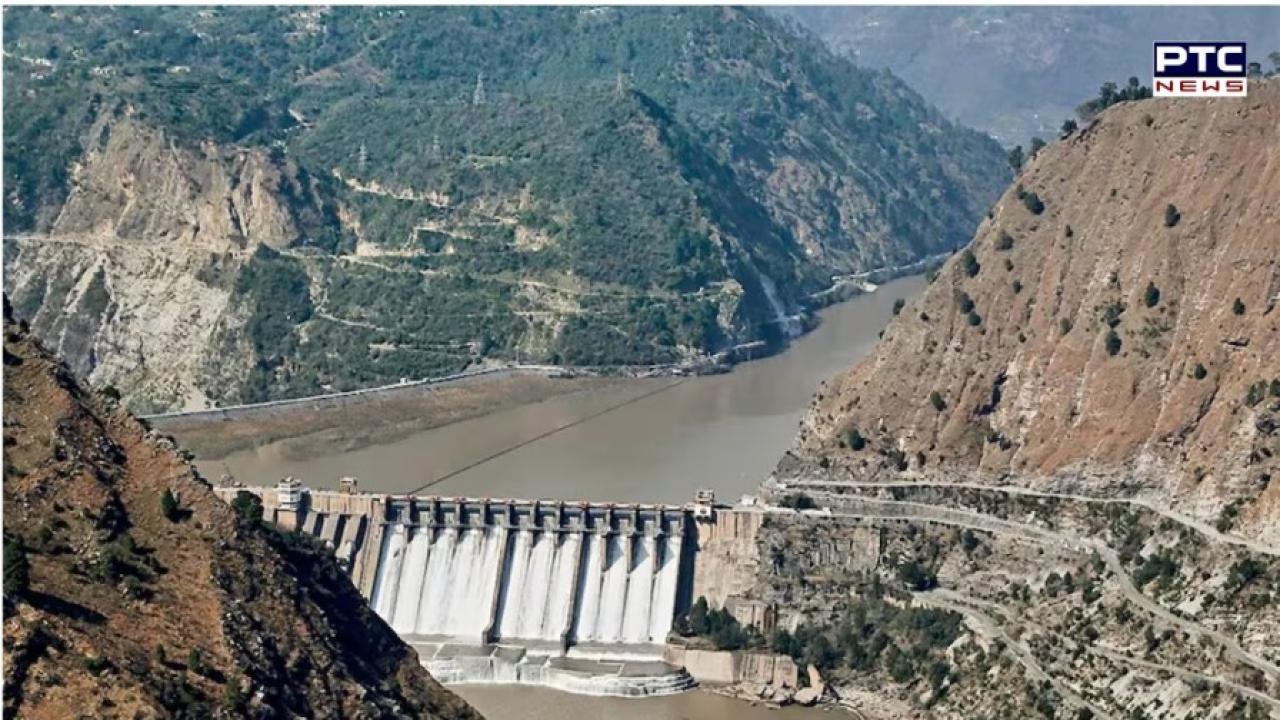

Pakistan reacts after suspension of Indus Waters Treaty suspension, terms it an act of 'water warfare'
PTC Web Desk: In a dramatic escalation of tensions, Pakistan has condemned India's decision to suspend the Indus Waters Treaty in response to the Pahalgam Terror Attack, branding it an act of "water warfare." Declaring the move illegal and unilateral, Pakistan asserted that India cannot walk away from a treaty that involves international stakeholders such as the World Bank. Islamabad has pledged to challenge the suspension through legal channels, warning of serious diplomatic consequences.
Pakistan’s Energy Minister Awais Leghari voiced strong opposition on social media, stating: "India's reckless suspension of the Indus Waters Treaty is an act of water warfare; a cowardly, illegal move. Every drop is ours by right, and we will defend it with full force — legally, politically, and globally."
The minister’s remarks came following a high-level meeting of Pakistan’s National Security Committee (NSC), which convened to evaluate India’s escalating measures after the attack. The terror outfit The Resistance Front (TRF) — a known offshoot of Lashkar-e-Taiba, based in Pakistan — has claimed responsibility for the Pahalgam massacre, fueling India’s response.
What Is the Indus Waters Treaty?
Signed in 1960 under World Bank mediation by Indian Prime Minister Jawaharlal Nehru and Pakistani President Ayub Khan, the Indus Waters Treaty allocates the rivers of the Indus River system between the two countries:
India controls the eastern rivers: Ravi, Beas, and Sutlej.
Pakistan receives the western rivers: Indus, Jhelum, and Chenab.
The treaty allows both countries limited access to the rivers controlled by the other for uses like irrigation, navigation, and hydropower generation.
The agreement, seen as a rare example of India-Pakistan cooperation, was born out of post-Partition tensions. In 1948, India halted water flow to Pakistan, prompting global mediation, eventually leading to the treaty with World Bank oversight.
Why it matters for Pakistan?
The suspension of the treaty could have dire consequences for Pakistan, which relies heavily on the Indus River system for agriculture, drinking water, and industry. The western rivers account for about 80% of Pakistan’s water flow, making them essential to provinces like Punjab and Sindh.
Key stats on Pakistan’s water dependency
The agricultural sector contributes 23% to GDP and supports 68% of rural livelihoods.
The Indus basin provides 154.3 million acre-feet of water annually.
Major dams like Tarbela and Mangla have a combined live storage of just 14.4 MAF—only 10% of Pakistan’s annual water share.
Pakistan is already grappling with groundwater depletion, salinity, and insufficient storage capacity.
Without the treaty’s protection, interruptions to water flow could lead to crop failure, food insecurity, economic instability, and deterioration of rural livelihoods.
Pakistan insists that India cannot unilaterally withdraw from the treaty, especially as it is backed by the World Bank and designed to survive geopolitical rifts. Islamabad has vowed to legally challenge the suspension through international forums and maintain diplomatic pressure to uphold its rights.
- With inputs from agencies
